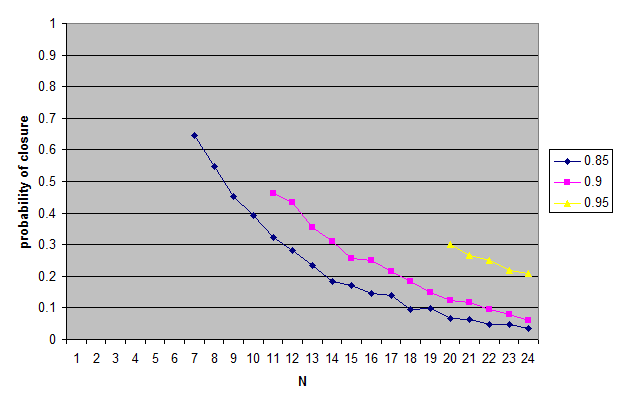Suppose soft determinism is true: the world is deterministic and yet we are responsible for our actions.
Now imagine a device that can be activated at a time when an agent is about to make a decision. The device reads the agent’s mind, figures out which action the agent is determined to choose, and then modifies the agent’s mind so the agent doesn’t make any decision but is instead compelled to perform the very action that they would otherwise have chosen. Call the device the Forcer.
Suppose you are about to make a difficult choice between posting a slanderous anonymous accusation about an enemy of yours that will go viral and ruin his life and not posting it. It is known that once the message is posted, there will be no way to undo the bad effects. Neither you nor I know how you will choose. I now activate the Forcer on you, and it makes you post the slander. Your enemy’s life is ruined. But you are not responsible for ruining it, because you didn’t choose to ruin it. You didn’t choose anything. The Forcer made you do it. Granted, you would have done it anyway. So it seems you have just had a rather marvelous piece of luck: you avoided culpability for a grave wrong and your enemy’s life is irreparably ruined.
What about me? Am I responsible for ruining your enemy’s life? Well, first, I did not know that my activation of the Forcer would cause this ruin. And, second, I knew that my activation of the Forcer would make no difference to your enemy: she would have been ruined given the activation if and only if she would have been ruined without it. So it seems that I, too, have escaped responsibility for ruining your enemy’s life. I am, however, culpable for infringing on your autonomy. However, given how glad you are of your enemy’s life being ruined with your having any culpability, no doubt you will forgive me.
Now imagine instead that you activated the Forcer on yourself, and it made you post the slander. Then for exactly the same reasons as before, you aren’t culpable for ruining your enemy’s life. For you didn’t choose to post the slander. And you didn’t know that activating the Forcer would cause this ruin, while you did know that the activation wouldn’t make any difference to your enemy—the effect of activating the Forcer on yourself would not affect whether the message would be posted. Moreover, the charge of infringing on autonomy has much less force when you activated the Forcer yourself.
It is true that by activating the Forcer you lost something: you lost the possibility of being praiseworthy for choosing not to post the slander. But that’s a loss that you might judge worthwhile.
So, given soft determinism, it is in principle possible to avoid culpability while still getting the exact same results whenever you don’t know prior to deliberation how you will choose. This seems absurd, and the absurdity gives us a reason to reject the compatibility of determinism and responsibility.
But the above story can be changed to worry libertarians, too. Suppose the Forcer reads off its patient’s mind the probabilities (i.e., chances) of the various choices, and then randomly selects an action with the probabilities of the various options exactly the same as the patient would have had. Then in acting the Forcer, it can still be true that you didn’t know how things would turn out. And while there is no longer a guarantee that things would turn out with the Forcer as they would have without it, it is true that activating the Forcer doesn’t affect the probabilities of the various actions. In particular, in the cases above, activating the Forcer does nothing to make it more likely that your enemy would be slandered. So it seems that once again activating the Forcer on yourself is a successful way of avoiding responsibility.
But while that is true, it is also true that if libertarianism is true, regular activation of the Forcer will change the shape of one’s life, because there is no guarantee that the Forcer will decide just like you would have decided. So while on the soft determinist story, regular use of the Forcer lets one get exactly the same outcome as one would otherwise have had, on the libertarian version, that is no longer true. Regular use of the Forcer on libertarianism should be scary—for it is only a matter of chance what outcome will happen. But on compatibilism, we have a guarantee that use of the Forcer won’t change what action one does. (Granted, one may worry that regular use of the Forcer will change one’s desires in ways that are bad for one. If we are worried about that, we can suppose that the Forcer erases one’s memory of using it. That has the disadvantage that one may feel guilty when one isn’t.)
I don’t know that libertarians are wholly off the hook. Just as the Forcer thought experiment makes it implausible to think that responsibility is compatible with determinism, it also makes it implausible to think that responsibility is compatible with there being precise objective chances of what choices one will make. So perhaps the libertarian would do well to adopt the view that there are no precise objective chances of choices (though there might be imprecise ones).



